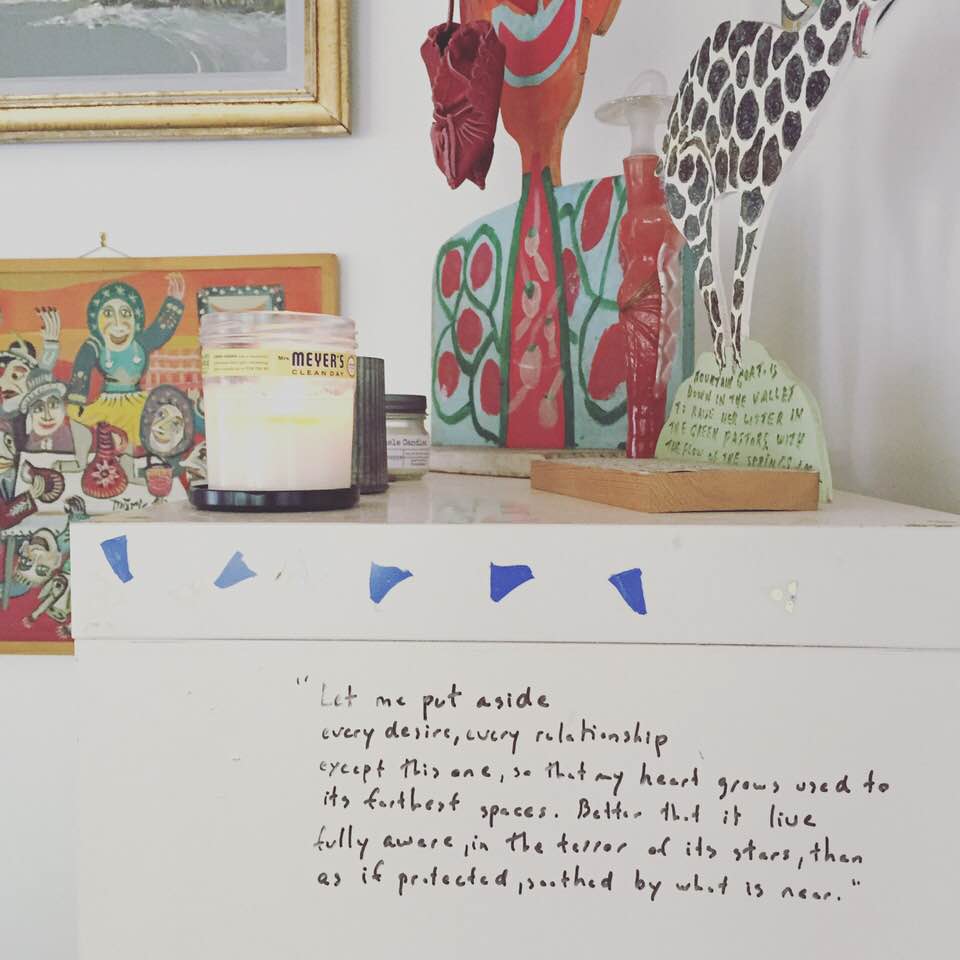1. Sometimes we write a story to force ourselves to acknowledge the person who wrote that story.
2. Every rapture begins with attention which swells into appreciation which enables witness.
3. When writing fiction, the challenge may be how to best use the sustain pedal. How to push a sound until it fills just enough of the room to bud an echo. How to satisfy and fulfill while encircling an absence. How to hollow out and round the sound. A room with music calms the restless reader.
4. Don't force your mammals to carry an awkward plot. Cows are incapable of predicting or sensing an earthquake. Cows don't even respond to an earthquake when the hills begin rolling. Don't abuse cows by asking too much.
5. There is always a secret weapon.
6. Emotional blindness thickens the soup. There's something intransigently sexy about well-written alexithymia, or when persons are unable to articulate their own feelings or understand the feelings of others.
“We do wear masks to be seen, but I also think in the US we often wear masks to be overlooked, to disappear in a sea of familiar hat-wearing heads, to be accepted, to feel safe. ”
7. Make use of the incredible literary community that flourishes on Twitter.
8. Explore what Roland Barthes called "doxa", repressive discourses or worldviews which keep our consciousness from reaching too far into logic or practicality. Barthes believed that every character has their doxa, that which keeps him moored or restrained, that which limits his imagination. Use your doxa to divide yourself. How would you change if you had other doxa? Do the same for your characters.
9. See what happens if you avoid the bad childhood as an explanatory device.
“The bad childhood is there to explain the troubled adulthood, etc. In fact the past, in narrative terms, is the worst sort of cudgel, and we’re punished with infantilizing explanations of how things have come to be. Back story until death. No matter how stylish and well-shot and interestingly-paced many of these shows are, they are defined by emotional artifice, regulated by storytelling conventions that seem destined to keep us at arm’s length, or, worse, alienated from our own true experience.”
10. Experiment with what Carmen Jiminez Smith calls "aesthetic promiscuity... the feeling of feeling infected by forms deployed by other poets.” Or fiction writers. Broaden voice to make space for multiple aesthetics.
11. In How Fiction Works, James Woods discusses writing over character by inserting a "descriptive pause" which draws attention to surface or a texture, an abrupt interruption that changes the pace or movement in a scene. He notes that fiction writer Joy Williams is an expert at this strategy of pinching loose strands from a small rug. Write (or rewrite) a scene using this descriptive pause to experiment with modulation and pacing.
12. Write jealousy in public spaces with a surfeit of pedestrian traffic so you pay keen attention to the details of body language and physical atmosphere. Dialogue is too limpid to reveal the full power of jealousy; how it alters a room or the space between bodies.
13. Fact: Deborah Eisenberg’s first short story was published when she was almost forty.
14. Be mindful of the way in which female characters operate from passivity or powerlessness. Try to present the seemingly mindless or automatic with appropriate complexity.
15. Read Margaret Atwood's "Happy Endings" while sitting in traffic. Read it again on the toilet. Read it one more time before falling asleep for good luck.
16. Sneak in a few song lyrics for yourself. Do this for each story until you wind up with a collection that doubles as a playlist.
17. Do the destabilizing thing.
18. Daunt less. Haunt more.
19. Invest in characters that disturb you. Fiction works best when it's not intended to populate the room with drinking buddies.
20. Find a way to manage the loneliness. Or don't. But find a way to live with that.
“I want to write the cowardice and fear that leads us to ideologies of hate. Writing is so many colors of marvel and awe but also, somehow, witness. The simple act of holding up a mirror, and asking you to look.”

